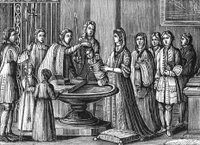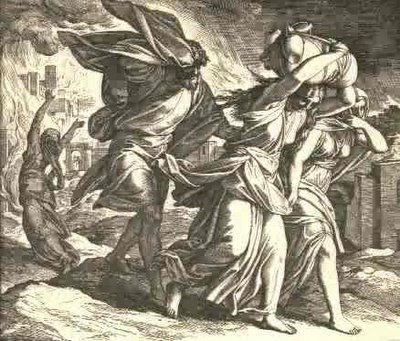"And as they departed from Jericho, a great multitude followed Him, And behold, two blind men were sitting by the way side, when they heard that Jesus passed by, and cried out, saying, Have mercy on us, O Lord, thou Son of David. And the multitude rebuked them, because they should not hold their peace: but they cried the more, saying, Have mercy on us, O Lord, thou son of David. And Jesus stood still, and called them and said what will ye, that I should do unto you? They said unto Him, Lord, that our eyes may be opened. So Jesus had compassion on them, and touched their eyes: and immediately their eyes recieved sight, and they followed Him." (Matt. 20:29-34)
I think that this portion of the Gospel According to Matthew has some Salvation type of an application to it. I was blinded by sin, I was helpless to save myself, but when I heard about Jesus Christ I saw my lost condition and my need to trust Him alone as my Savior, and when I did that, something amazing happened - - I was able to see, or in other words I got 'saved.' I remember that it was not just a mental accent, or tipping my hat sort-to-say to Jesus, It was not a mere lightharted prayer. It was true geniune repentance of sin and faith in Jesus Christ. I believe there is just no substitute for true Salvation. By this I mean - - think of the joy that was produced when these two blind men got their sight back, I don't think they took the Lord's miracle lightly, I believe they were leaping up and down with joy (I know btw that I am reading into the text somewhat), I can imagine them returning to family and friends with a story! I can see why after Jesus took care of their need that they wanted to 'follow Him.' To me this is such a picture of Salvation. Today sadly we read of easy-prayerism, or even a controversy of 'Lordship type Salvation,' we read of a redefinition of 'repentance' or that it is not necessary for Salvation. I guess I am just thinking about how my Salvation experience lines up with some in the Bible. To my surprise its not too different. Since the day I got saved at 15, I wanted to 'follow Him.' When people tell me flipantly that they are 'saved' and yet demonstrate no clear testimony of how the Lord saved them, no clear rejoicing of the joy of their Salvation, no clear following of Him, no hint of spirituality, no love for the brethren that is standing in front of them (me and my Sat. soulwinning partner - LOL!). Its hard to think that once they were blind but now they can see, and perhaps in that case its better to err on the side of right, but I honestly don't think that it is any error. Have your eyes been opened?
















